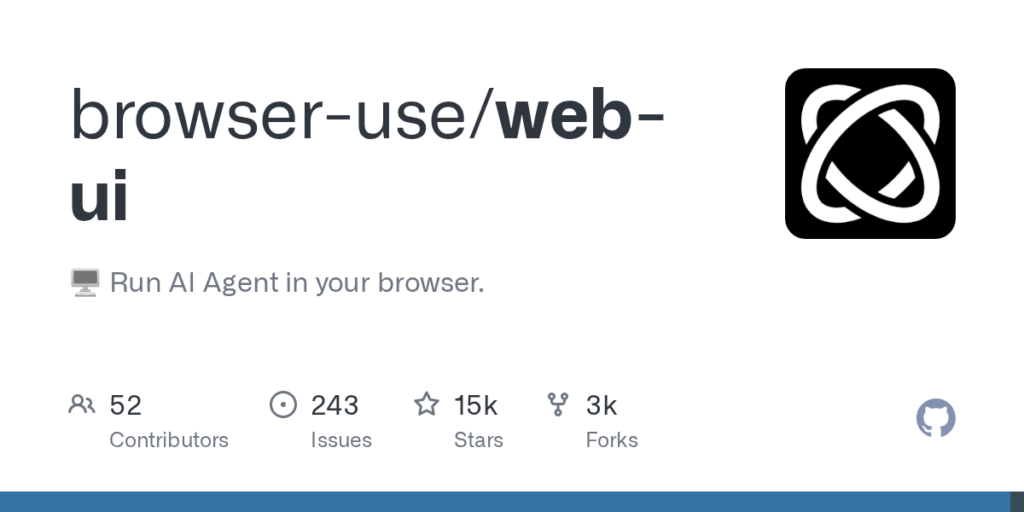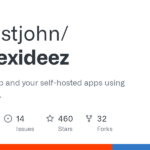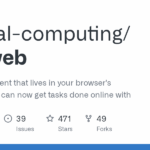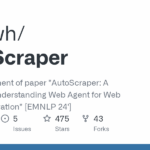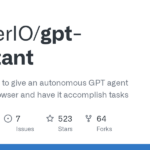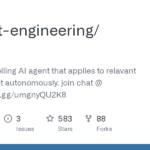web ui
Basic Information
This repository provides a Gradio-based Web UI to run and interact with browser-use AI agents in a user-friendly interface. It is intended for users who want to run AI agents that browse and interact with websites without building a custom frontend. The project exposes browser automation and agent functionality from the browser-use ecosystem while adding a visual interface, model selection, session controls, and deployment options. It supports running locally with a Python virtual environment and Playwright-installed browsers or via Docker Compose for containerized deployments. The UI enables watching, recording, and managing browser-driven agent tasks and persistent sessions so users can inspect history and state between runs.
Links
Stars
14560
Github Repository
App Details
Features
Gradio web interface for easy interaction with browser agents. Expanded LLM support including Google, OpenAI, Azure OpenAI, Anthropic, DeepSeek, Ollama and planned additions. Custom browser support via BROWSER_PATH and BROWSER_USER_DATA so you can use your own browser profile to avoid re-login. Persistent browser sessions that keep context and history between tasks. Playwright integration with instructions to install browsers and dependencies. Local run command and optional Docker Compose deployment with ARM64 target support. VNC viewer endpoint for watching browser interactions with a default password option. Configuration via a .env file for API keys and settings. HD screen recording support and changelog notes about DeepSeek integration.
Use Cases
The Web UI lowers the barrier to using browser-based AI agents by providing an out-of-the-box graphical frontend, simplifying experimentation and demonstrations. Multi-LLM support lets users switch models without reconfiguring the backend. Custom browser and persistent session features allow agents to reuse logged-in states and preserve page history, reducing friction for tasks that require authentication or long workflows. Docker and local installation options support both development and deployable setups. VNC and recording features make it easier to monitor, debug, and share agent behavior. Environment configuration via .env centralizes API keys and runtime options for reproducible runs.

